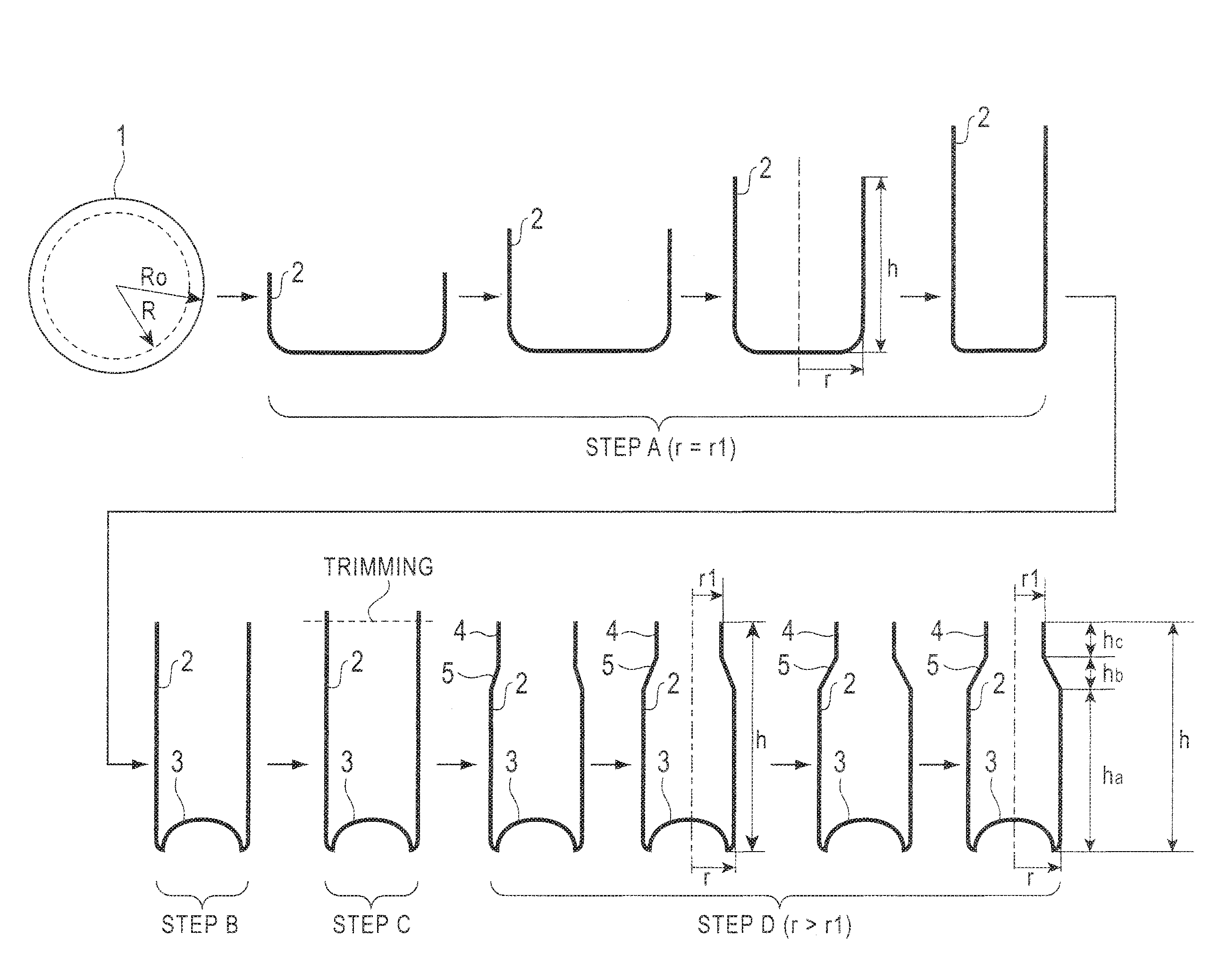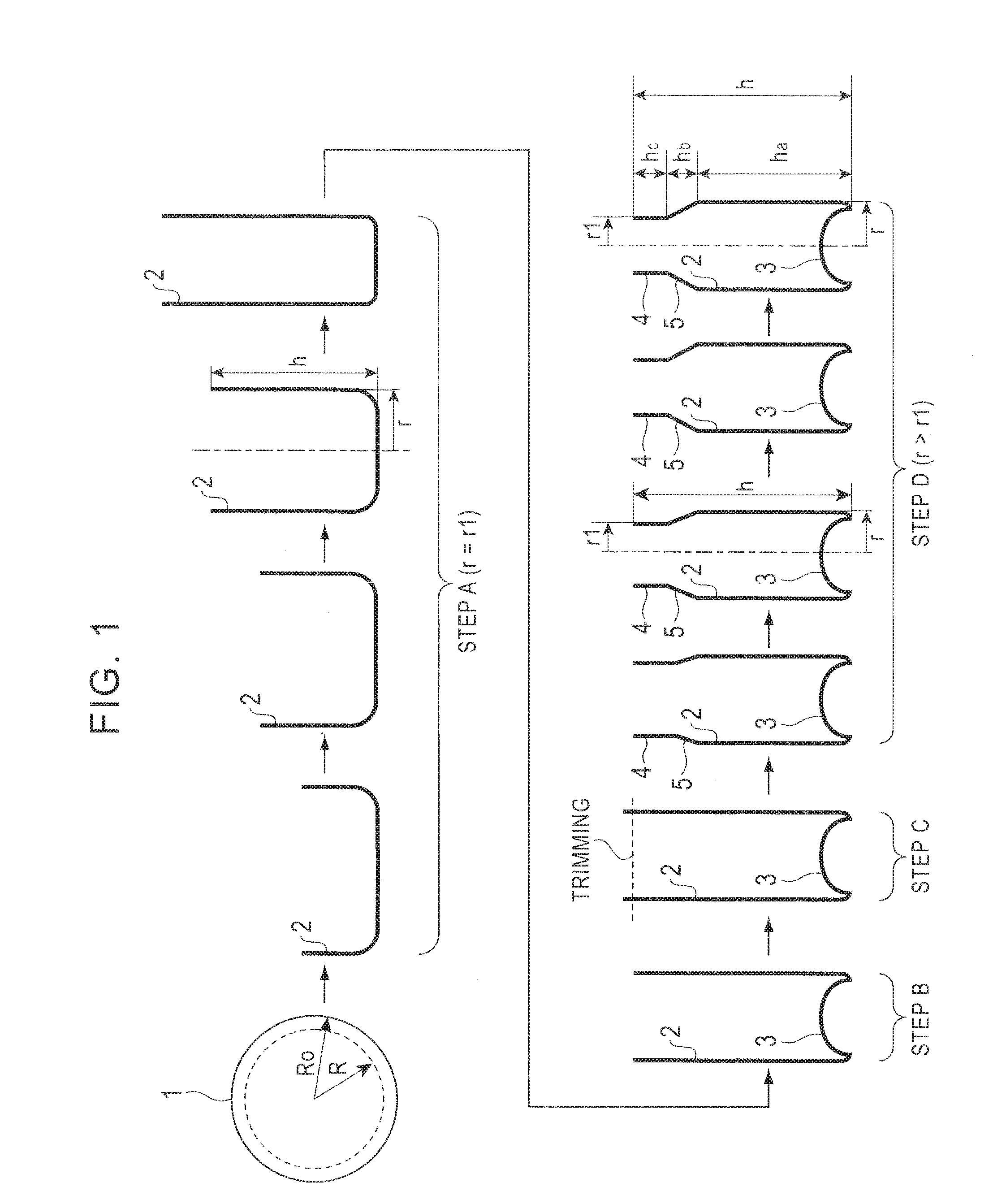Method for production of two-piece can
a two-piece, can body technology, applied in the direction of rigid containers, other domestic articles, synthetic resin layered products, etc., can solve the problems of low strain level of the can body obtained, no study on the use of laminated steel sheet for the production of can bodies through drawing and subsequent diametral reduction,
- Summary
- Abstract
- Description
- Claims
- Application Information
AI Technical Summary
Benefits of technology
Problems solved by technology
Method used
Image
Examples
example 1
[0082]The examples of the present invention are described below.
[0083]“Making of Laminated Steel Sheet”
[0084]A tin-free T4CA steel sheet (metal Cr layer: 120 mg / m2, Cr oxide layer: 10 mg / m2 in terms of metal Cr) having a thickness of 0.20 mm was used as the substrate. The substrate was subjected to film lamination (film heat lamination) or direct lamination (direct extrusion) thereby forming various resin layers. The resin films were made from resin pellets manufactured by Kanebo Gohsen, Ltd. The resins were appropriately combined so as to give the compositions listed in Table 1, and made into monolayer or two-layer co-extruded or biaxially oriented films by an ordinary method. The films having a thickness of 25 μm were individually laminated to both sides of the substrates, thus making laminated steel sheets. The center line surface roughness (Ra) of the laminated films (resin layers) was controlled by changing the surface profile of the lamination roll, and the temperature and pre...
PUM
| Property | Measurement | Unit |
|---|---|---|
| surface roughness Ra | aaaaa | aaaaa |
| thickness | aaaaa | aaaaa |
| surface roughness Ra | aaaaa | aaaaa |
Abstract
Description
Claims
Application Information
 Login to View More
Login to View More - R&D
- Intellectual Property
- Life Sciences
- Materials
- Tech Scout
- Unparalleled Data Quality
- Higher Quality Content
- 60% Fewer Hallucinations
Browse by: Latest US Patents, China's latest patents, Technical Efficacy Thesaurus, Application Domain, Technology Topic, Popular Technical Reports.
© 2025 PatSnap. All rights reserved.Legal|Privacy policy|Modern Slavery Act Transparency Statement|Sitemap|About US| Contact US: help@patsnap.com


